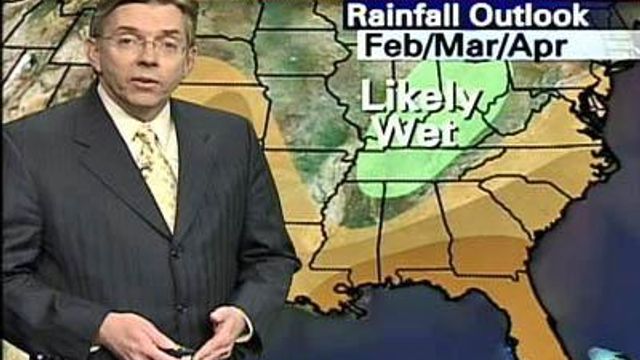Extreme Measures Suggested for 'Stage 3' Water Limits
Three days before Raleigh moves to the strictest water restrictions on the books, City Council members already are thinking of even more stringent measures they can impose if the drought continues.
Posted — UpdatedCouncilman Rodger Koopman has floated the idea of a building moratorium, saying city residents should use drinking water only for hygiene, safety and survival. But others said less extreme moves are more likely to be approved.
Last week, the City Council voted unanimously to begin Stage 2 restrictions this Friday. The rules ban outdoor watering and pressure-washing and force car washes that don't use city-certified water recycling systems to close.
The council is expected to meet next Tuesday with representatives of the Army Corps of Engineers, which manages Falls Lake, the city's primary reservoir, to discuss the corps' recent forecast that the lake could run dry by this summer.
Falls Lake is about 8½ feet below normal and has enough drinking water to last at least through the end of May, based on continued demand of about 40 million gallons a day, officials said Tuesday.
A report issued Tuesday indicated that the region has a 20 percent chance of escaping drought conditions in the coming months, WRAL Chief Meteorologist Greg Fishel said. The area would need 13 to 16 inches of rain by May or 22 to 26 inches by August to end the drought, he said.
A rainfall outlook by the National Weather Service predicted drier-than-normal conditions across the Southeast for the next three months, Fishel said.
Council members also plan to discuss next week various water-saving ideas that might be used as guidelines for potential "Stage 3" rules.
"I've already been on the phone with other councilors, and we're talking about going to Stage 3," Koopman said, adding that he's in favor of eliminating all uses of drinking water that aren't necessary for survival, even if it adversely affects some businesses.
"Should we stop construction on new development at least for a while while we figure out what's facing us?" he said. "I would rather overreact and, six months from now, explain to voters why we have too much water than to underreact and go to business as usual because I did not make the right decision.
"Maybe I will be a one-term council person, but if it means my 7-year-old son – he just turned 8 – has a future in this city because we preserve the quality of the city, then I will have done my job."
But Dale Crisp, the director of Raleigh's Public Utilities Department, urged patience before any extreme measures are adopted.
"My personal opinion is that it's premature to even talk about Stage 3 until we see what Stage 2 does," Crisp said.
The city might look to buy water from Cary, which has more than 300 days of available water in Jordan Lake, or closing some of the loopholes in the Stage 2 rules, he said. Such changes might include closing city-certified car washes or preventing developers from flushing water lines on new homes, he said.
Mayor Charles Meeker said the city might require businesses to install low-flow devices in restrooms. City officials have asked all residents and businesses to switch to such devices on faucets, shower heads and toilets by March 1.
"We're getting data from the weather service that says it's the worst drought in 800 years. Yet, we haven't run out of water; we have enough to last until the end of May," Crisp said. "If the weather service is right and we're experiencing such a bad event as they say we are, we've actually done pretty good managing through that."
• Credits
Copyright 2024 by Capitol Broadcasting Company. All rights reserved. This material may not be published, broadcast, rewritten or redistributed.






